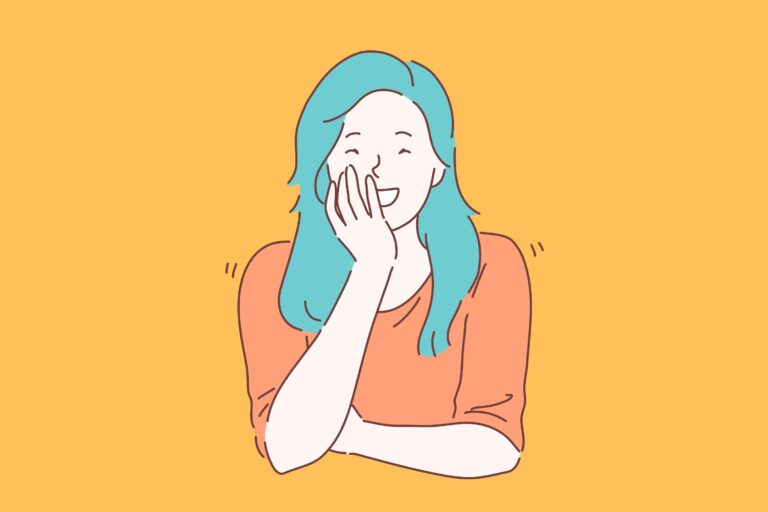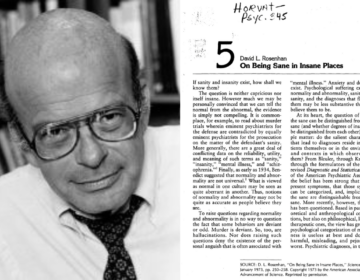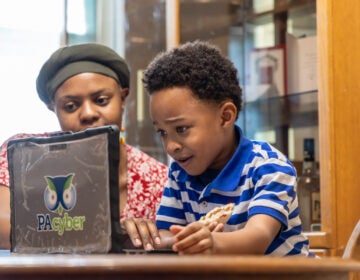Why we sometimes laugh during inappropriate times
Some people laugh when they want to cry, or cry when they want to laugh. Turns out, there’s a type of emotion regulation at work.
Listen 8:41
Many people experience inappropriate, uncontrallable laughter during really intense situations, when things aren't very funny. Turns out, that this is a type of emotion regulation at work. (LogotypeVector / Big Stock Photo)
This story is from The Pulse, a weekly health and science podcast.
Subscribe on Apple Podcasts, Stitcher or wherever you get your podcasts.
Fizza Ali has been one of my closest friends since we met back in high school, in Flushing, Queens, 10 years ago.
I talk to her about pretty much everything, from relationship woes to medical issues and everything in between. She’s a great listener: supportive when she needs to be, but willing to tell me to shut up when I really do need to shut up.
For the most part, Fizza is fantastic with difficult topics. She’s been there for me when I had some trouble early on in college and when I’ve had family drama or relationship issues.
But there were two specific times, both back when we were in college, when Fizza reacted in a way that kind of freaked me out.
Laughter in the dark times
The first was an ordinary day when we were both off from school and work. We were hanging out at Flushing Meadows Park listening to music and chatting about different things. But I was feeling down on this day because something had happened to my cousin, something that I wanted to share with Fizza.
“And then I don’t know what brought this up, but you told me that your cousin had a miscarriage, and I like broke out in laughter,” Fizza said.
Yeah, she laughed. And she couldn’t stop laughing.
She said that she didn’t think that it was funny, but she just couldn’t stop laughing. “I just, I couldn’t believe myself that I had laughed that hard, but I just kept laughing.”
I remember thinking at first how insensitive she was being by laughing. I was speechless and didn’t know what to say.
But after a few seconds … the absurdity of it all, just watching her laugh, trying unsuccessfully to control herself … it got to me, and I started laughing as well.
The second bout of inappropriate laughter happened similarly.
Fizza and I were hanging out at my place, eating Chinese food and watching Netflix, when my mom came home early from work looking really bummed out. My mom is a home health aide, and she usually stays with her patients until one of their family members returns home from work. Normally, she doesn’t get home until nighttime.
“Your mom came home, and you were surprised that she came home early, I think, and she was just like, ‘Yeah, my patient died.’ And I … just started laughing. And she looked at me like I was insane. But I just remember feeling really awkward, and I was like holy shit. And I guess I felt also awkward because, it was your mom. And I don’t know if I’d interacted with her before.”
Fizza was right: That was the first time she and my mother had met, and I was extremely embarrassed about it. I didn’t want my mom to think that all of my friends were these insensitive weirdos.
But as I looked over at my mom watching Fizza, I saw her initial look of shock turn into a smile and then a laugh. Eventually, all three of us started laughing together.
“I feel like your mom started laughing too, and you did as well, because I think she looked at me like, ‘Wow, this girl is insane,’ and that kind of lightened the situation,” Fizza said.
Those episodes of nervous laughter stuck in my mind for a long time. They were so memorable, in part, because Fizza didn’t mean to laugh either time. Her laughter was just what came out.
“I feel like it wasn’t under my control at all, you know? And then I couldn’t stop, which made it worse,” she said.
Opposite reactions
Fizza isn’t the only one who experiences unexpected, uncontrolled laughter. Many people react that way when confronted with intense situations.
“We think it … has to do with regulating your own emotions,” said Margaret Clark, a professor of psychology at Yale University. She’s done some research on nervous laughter and other types of dimorphous expressions of emotion.
Expressions like this happen when we’re feeling really emotional and have an excess of energy inside us. The excess comes out in a way that looks different than what we’re feeling internally.
“You’re overwhelmed, you’re feeling too positive and you express something that’s ordinarily associated with a negative emotion,” Clark explained. “We think it downregulates the intensity of the initial emotion. It works for both positive and negative emotions, because you can be overwhelmed with either kind of emotion and expressing the opposite seems to downregulate the emotion for some people.”
Subscribe to The Pulse
Nervous laughter or “happy-crying” serve to achieve a kind of emotional homeostasis similar to the body’s producing sweat to cool off when overheated, Clark said. For some people, their bodies involuntarily try to regulate happy or sad emotions by expressing an opposite reaction.
This “downregulating” has physiological benefits: Cardiovascular reactivity that is high during a stressful situation decreases, and people often report feeling better afterward.
Social coordination
Oriana Aragón, a professor of social psychology at Clemson University who worked with Clark on dimorphous expressions research, said these odd expressions seem to have social benefits as well.
“It can have a really great functional value in coordinating or creating cooperative interactions between social beings,” she said. “So crying tears of joy, people were more likely to want to comfort that person, even if they just won something really wonderful … to soothe, to calm, you know to bring down that individual. So the emotional expressions, expressions that are on the face, in the body can send signals to those around, in what is the best way to sort of coordinate action here.”
Aragón said Fizza’s reaction to me and my mom could be seen both as a way to cope with excess negative energy by forcing out laughter for herself, and as a way to provide some sort of cue for us.
“So your response to your friend in both cases when she started laughing upon hearing the negative news was that you lightened as well,” she said. “It could be that that response that you provided to your friend is exactly what was needed at that moment, and her laughter signaled what was needed at that moment to continue a really good social coordination between the two of you. And it could be that had she just sat there, you know, maybe with a frown or quietly, that the mood would have stayed in that depth, in that lower spot, and that was really out of the range where she was handling it well.”
Aragón said that needs to be studied empirically, mainly because most of her research focused on dimorphous expressions of positive emotions rather than negative ones. And there’s a good reason for that.
“Frankly, it’s harder for us to study the negative emotions that get so intense that these expressions come about than it is for us to study the positive emotions in which these expressions come about because of ethical reasons,” she said. “I mean, we don’t want to traumatize individuals as they come into the lab and participate in an experiment. So it’s been harder, more challenging for us to look at the negative experience where these positive expressions pop up.”
A mixed bag of odd reactions
Aragón said it’s hard to know exactly why some people have such reactions and others don’t. Some theories suggest that individuals who express themselves in this manner usually feel emotions in a more intense way.
Which would seem to track with a dimorphous expression called cute aggression.
“I was watching Conan O’Brien and an actress, Leslie Bibb, was on,” Aragón said. Bibb told Conan that when she sees a puppy that is so cute, she just wants to kick it in the head.
At the time, Aragón was working on research in expressions and emotions. “I thought, `Oh my gosh. What’s going on the outside doesn’t look like what’s being felt on the inside.’”
According to her research, Aragón said, if you’re prone to experiencing one dimorphous expression, you’re more likely to experience the others.
So I asked Fizza about that. She said she remembered a few times when she happy-cried, maybe once or twice. But the cute aggression, she definitely related to that one.
“Oh, yeah, for sure, doesn’t everyone?” she said. “The other day, my sister sent me a Snapchat of my niece, Miriam, and her cheeks are so huge, and I was just like, ‘Oh my God, she’s so cute. I just wanna slap her,’ and she was like, ‘Slap her? Like, what’s wrong with you?’ And I’m like, ‘Not actually slap her, but she just looks so slappable, like her face is just asking to be slapped, you know?’ And she was just like ,‘You’re weird.’”
Aragón said that these expressions are pretty common, even across cultures, and that despite what my mom might have thought when Fizza first started laughing, they’re not usually related to any type of medical condition.
So the next time you hear a friend of yours say that they want to punch a baby in the face, or if they can’t stop laughing when you tell them about a misfortune, embrace the absurdity, and know that now you have a story you can laugh about for years to come.
WHYY is your source for fact-based, in-depth journalism and information. As a nonprofit organization, we rely on financial support from readers like you. Please give today.







